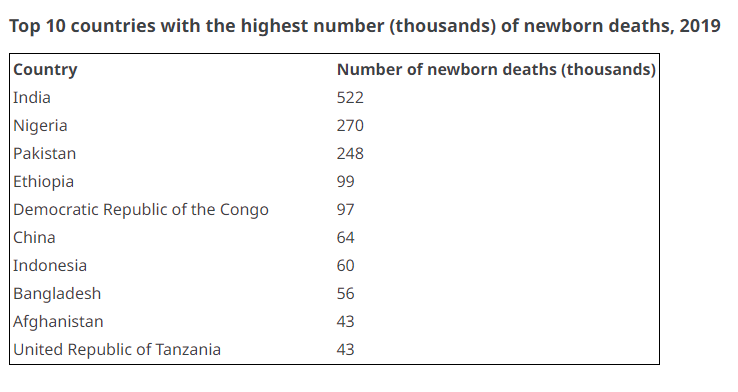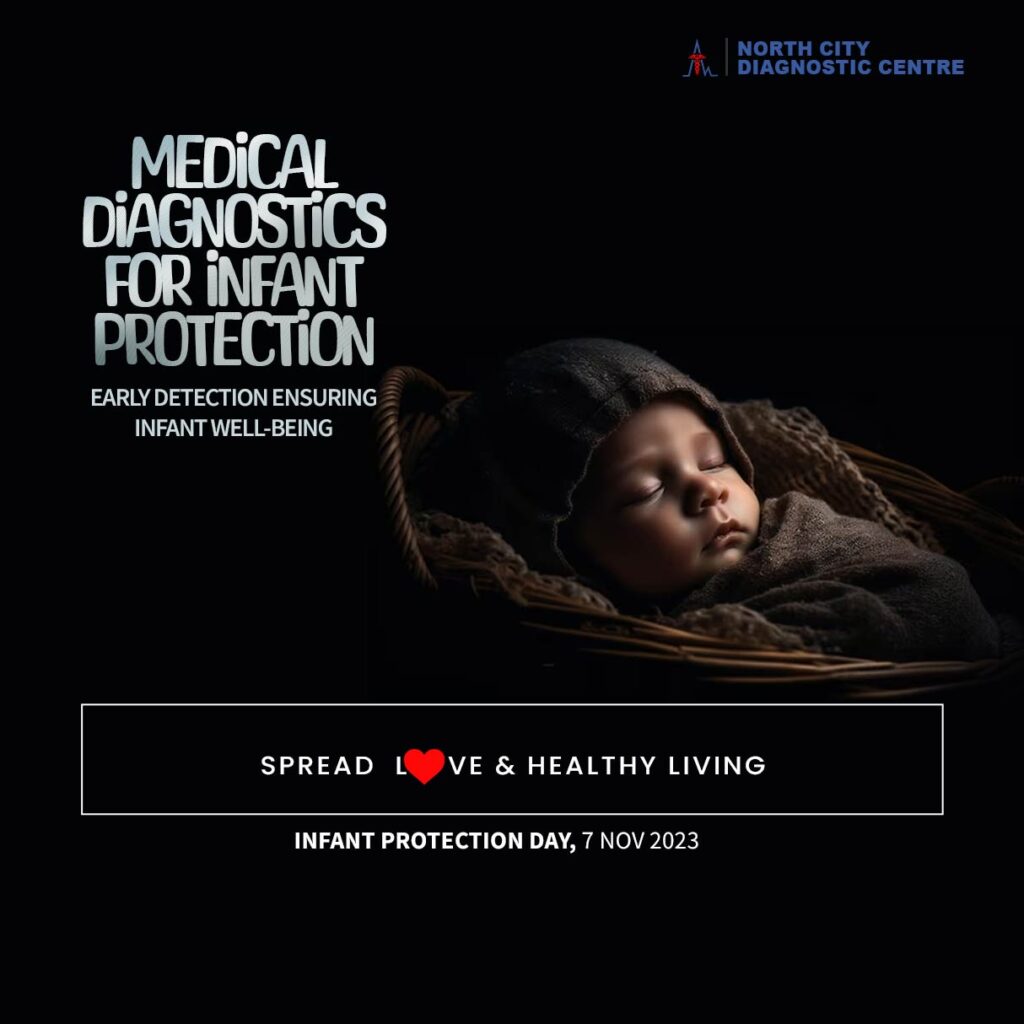
Menu
In a world filled with uncertainty, there is one thing that we, as parents and caregivers, hold dear above all else: the health and well-being of our infants. The journey of nurturing a newborn is a blend of joy, excitement, and, at times, apprehension. It’s a journey where every milestone, every giggle, and every peaceful night’s sleep is celebrated. But it’s also a journey where we are entrusted with the profound responsibility of protecting and ensuring the health of these tiny, fragile beings.
What medical diagnostics for infant protection provides is knowledge to do just that. Imagine, for a moment, that you possess a magical ability – the ability to see into the future and identify any potential health concerns that your baby might face. Medical diagnostics can be just that magical power. Early detection through medical tests and screenings can make all the difference. It’s like having a guardian angel watching over your child’s health, ensuring that they grow and thrive, unburdened by avoidable health issues.

Source: WHO

“Policies on children and child care are the most effective investment for the future.”
– Fumio Kishida
Medical diagnostics, serving as the cornerstone of infant healthcare, are instrumental in safeguarding the well-being of newborns. Early detection of potential health issues is not merely advantageous; it is essential for providing a strong foundation for the lifelong health of these precious lives.
One of the key aspects where medical diagnostics shine is in ensuring prompt treatment. Healthcare professionals, armed with cutting-edge diagnostic tools and technologies, can swiftly and accurately identify abnormalities, infections, or congenital conditions that may afflict infants. This early intervention is a pivotal factor in guaranteeing that infants receive the prompt and effective treatment they require.
When a health issue is detected in its nascent stage, it can often be addressed more effectively and with less invasive treatments. This not only minimizes the physical and emotional stress on the infant but also reduces the financial burden on families. Moreover, early treatment can prevent the condition from worsening or causing long-term complications, ultimately securing a healthier future for the child.
Timely diagnosis and intervention are especially critical in cases of infectious diseases, as quick identification allows for containment and treatment. It can also prevent the spread of infections within the family or the broader community, thereby contributing to public health as well.
In the case of congenital conditions, early detection opens the door to timely interventions, potentially improving the quality of life for the infant. Whether it’s a congenital heart defect, a genetic disorder, or any other condition, knowing about it early allows for proper medical management and support.
Avail specialized Health check-up and screening. North City Diagnostic Centre offers state-of-the-art health check-up and screening packages at affordable prices. Call 
These tests are typically done shortly after birth to detect a range of congenital and genetic disorders. Common tests include:
PKU (Phenylketonuria) Test: Screens for a genetic disorder that affects the body’s ability to break down an amino acid.
Hearing Screening: Detects hearing problems early to ensure proper intervention.
Critical Congenital Heart Disease (CCHD) Screening: A pulse oximetry test to identify heart defects.
This test determines the baby’s blood type and Rh factor. It’s essential for understanding potential blood compatibility issues between the mother and the infant.
This test measures the level of bilirubin in the baby’s blood to assess the risk of jaundice, a common condition in newborns.
Beyon This test measures the level of bilirubin in the baby’s blood to assess the risk of jaundice, a common condition in newborns.
d PKU, additional metabolic disorders can be screened for, such as galactosemia and maple syrup urine disease.
To detect hearing issues early on, often through automated auditory brainstem response (AABR) or otoacoustic emissions (OAE) tests.
Screens for various metabolic and genetic disorders, including hypothyroidism and sickle cell disease.
Useful for identifying haemoglobin disorders such as sickle cell anaemia or thalassemia.
A routine urine test to check for urinary tract infections or kidney issues.
If there are concerns about lung or heart problems, these imaging tests may be performed.
In some cases, genetic testing may be recommended to identify specific genetic conditions, especially if there’s a family history of such disorders.
While not a diagnostic test in the traditional sense, developmental assessments help track an infant’s growth and milestones, ensuring they are on track in their early development.
Ensuring that infants receive the recommended vaccinations at the appropriate ages is crucial for preventing a range of infectious diseases.
Checkups monitor infant growth and identify delays early for better interventions.
Ensuring that infants receive the recommended vaccinations at the appropriate ages is crucial for preventing a range of infectious diseases.
Identify sensory issues early for improved learning and well-being.
Prevent dental problems and promote oral hygiene in children.
Early intervention enhances a child’s well-being.
Crucial for early identification and improvement of language skills.
Educate parents on safety, nutrition, and injury prevention. This includes guidance on safety, nutrition, and injury prevention, helping parents create a safe and healthy environment for their child.
For children with allergies or chronic conditions, regular checkups help monitor their condition and adjust treatment plans as needed to ensure optimal health.
Regular checkups create a healthcare routine for children, helping them become comfortable with medical visits and reducing anxiety. This familiarity can ease the process of medical care and foster a positive attitude toward health.
Discuss family health for potential genetic risk awareness.
At North City Diagnostic Center we offer personalized testing schedule that aligns with your medical history and risk factors. Consistent monitoring can be invaluable for early detection and effective management of arthritis. It’s not just about how often you test but making sure that the tests are aligned with your overall health profile for maximum benefit.
https://www.healthychildren.org/English/ages-stages/baby/Pages/Newborn-Screening-Tests.aspx
https://www.who.int/news-room/fact-sheets/detail/newborns-reducing-mortality
https://www.ncbi.nlm.nih.gov/books/NBK539900/
https://www.ncbi.nlm.nih.gov/pmc/articles/PMC9201248/
https://sahyadrihospital.com/blog/newborns-babies-diseases/
https://medlineplus.gov/commoninfantandnewbornproblems.html
https://kidshealth.org/en/parents/checkup-2mos.html
https://kidshealth.org/en/parents/checkup-9mos.html
https://marchofdimes.org/find-support/topics/parenthood/newborn-screening-tests-your-baby
#InfantProtection #EarlyDetection #ChildHealth #MedicalDiagnostics #ParentingJourney #WellBeing #PreventiveHealthcare #NewbornScreening #Vaccination #HealthMilestones #PediatricCare #InfantWellness #NDC #Parenthood #InfantSafety #HealthyBeginnings #GuardiansOfHealth #ProactiveParenting #NorthcityDiagnostic #NorthCity #HealthFirst
35-A ,Canal West Road
Near Gouri Bari Bus Stop
Kolkata – 700004.
Local: +91 33 6605 0888